What is Egyptian cotton?
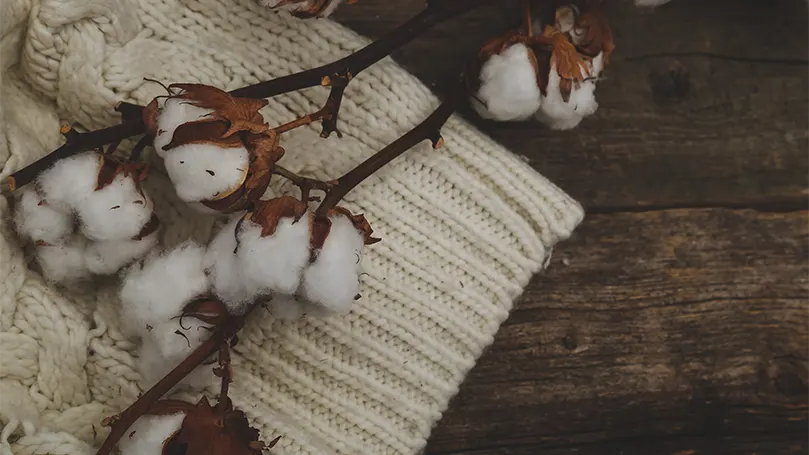
Cotton is a plant that has been cultivated for thousands of years around the world, equally in the Americas, Asia, Africa and other parts of the world where the climate is warm. It is a shrub plant of the genus Gossypium in the mallow family Malvaceae.
The fibre that grows around the seed of this plant is actually what we call cotton. What is interesting to know is that cotton fibre is almost 100% cellulose, while it hardly contains any other substances like water and wax.
By processing cotton, one of the softest and most breathable textiles in the world is obtained. There are different types of cotton plants, so although they have similar characteristics, some are better known than others. This is the case with Egyptian cotton which is considered to be the most luxurious type of cotton. It is a long staple, and sometimes an extra-long staple because the fibres can be up to 5 cm long.
What’s the difference between Egyptian cotton and regular cotton?
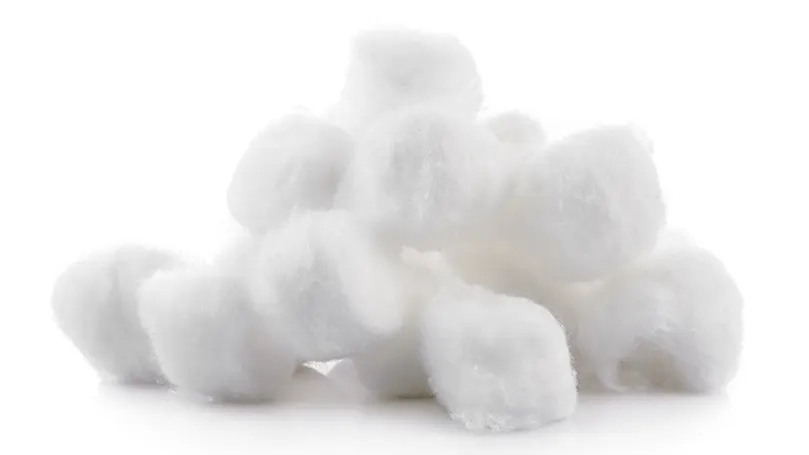
Egyptian cotton is grown in Egypt and this is certainly the first difference, but we will talk more about it in the next paragraph. What is the biggest difference though is the way these two types of cotton are picked. It is picked by hand, while regular cotton is picked by machine.
This is a huge difference in the process of growing cotton and obtaining this textile because in the middle of the process, Egyptian cotton is treated differently, and much more gently and thus the stress on the fibres is minimised.
This primarily affects durability, but also softness. Often the thread count is significantly different, but so is the price. Egyptian cotton is a luxury type of cotton that is usually more expensive due to the way it is picked, the place where it grows and its characteristics.
Is Egyptian cotton grown in Egypt?
Most believe that the only real Egyptian cotton is the one grown around the Nile Delta. Some growers claim that they also cultivate it in South America, the USA and India, but most believe it is Pima cotton and not Egyptian cotton. Both Pima cotton and Egyptian cotton are of premium quality and practically the only difference is where they are grown.
The mass production of Egyptian cotton began in the 19th century when the French noticed the fantastic features of this type of cotton. The French suggested the Egyptians start mass production and so this textile became one of the most important sources of income for Egypt. The unique climate does not change around the Nile, the sun is constantly present, and the fertile soil is favourable, so it is an ideal environment for this plant to be grown all year round.
Does Egyptian cotton last longer than regular cotton?
Yes, Egyptian cotton certainly lasts longer than regular cotton. Let's go back to the picking process. As we have already said, it is handpicked and then there is no damage to fibres that is possible when the machine picks cotton. Also, since Egyptian cotton is a long staple, then it is possible to spin it into yarn without compromising durability during that part of the process. Regular cotton is also a durable material, but you can count on Egyptian cotton bed sheets, for example, to last longer.
Why is Egyptian cotton expensive?
By now, you may have concluded some of the reasons why Egyptian cotton is more expensive than regular cotton in every fabric shop. The price of it is certainly realistic and it is a good investment because of the longevity of the products. The picking process is definitely not the only reason but there are other ones we will focus on now.
Softer than regular cotton
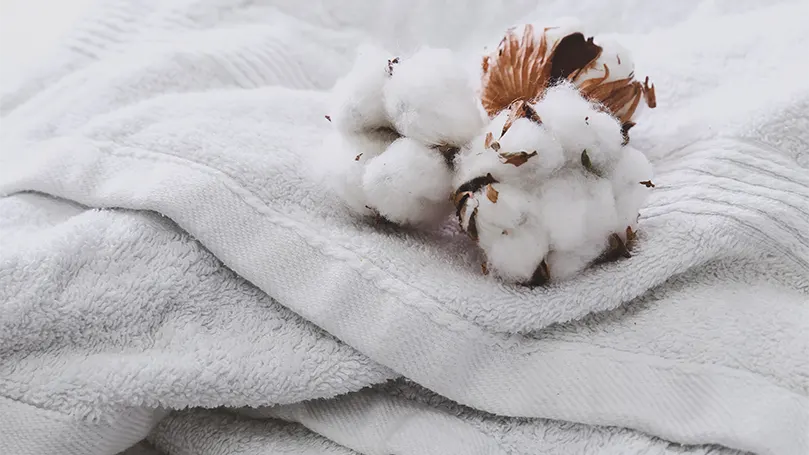
One of the many benefits of cotton in general is its softness. When you put on a cotton t-shirt or place your face on a cotton pillowcase, you will immediately notice the softness. Egyptian cotton is even softer than regular cotton, and at the same time, it is more durable which is a win-win situation.
Plus, having soft bedding has more benefits than just comfort. For example, softer fibres will also be less likely to irritate your skin. This is one of the reasons so many people love sleeping in silk sheets! And you get a similar effect with Egyptian cotton as well.
Breathable
Linen is a most breathable natural material and that is why it is popular in hot and humid parts of the world. But cotton, especially Egyptian cotton, is not far behind. Cotton is highly breathable too. Thanks to the shape of its fibres, you will notice a difference compared to other cotton types.
Colour absorbing
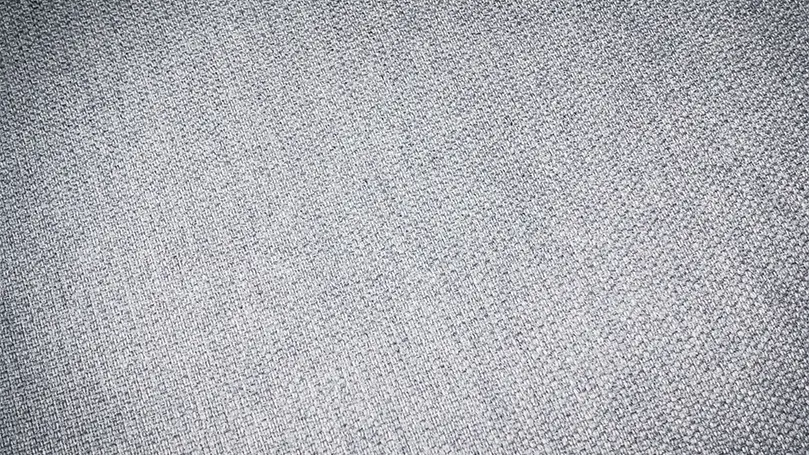
If you want your Egyptian cotton sheets to be as white as on the first day you bought them, all you need is baking soda, vinegar, and lemon juice.
However, if you want coloured sheets, then you should know this. Egyptian cotton sheets fade more slowly because fibres absorb colour deeper. We expect them to maintain their original colour for years. So, another plus when it comes to the durability of Egyptian cotton overall.
Consistency
You will surely notice the more consistent finish of it. The reason is finer fibres that can be woven in each part equally and thus get a better finish and softer material. That is why the finishing process is more demanding, which leads to a higher price of Egyptian cotton.
No pilling
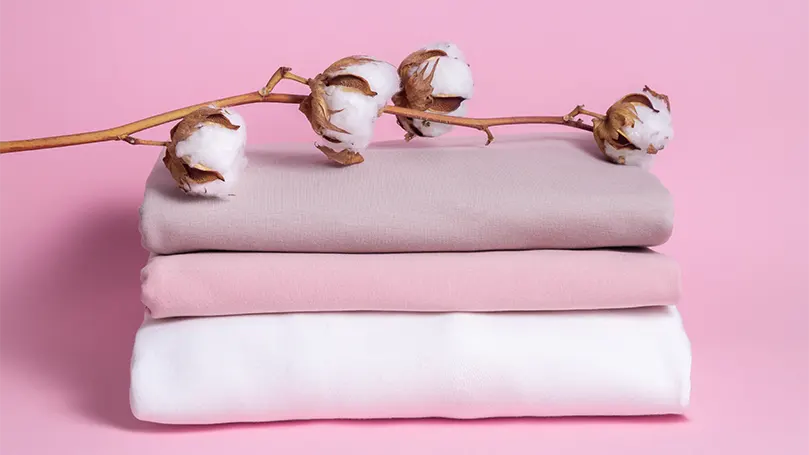
Synthetic fibres pill much more than natural materials. But tossing and turning during sleep creates friction and this can cause any type of fibre to break. While theoretically, this can happen to Egyptian cotton too, as it is not indestructible.
You probably won’t notice pilling any time soon. Honestly speaking, regular cotton is very good in this category as well. And if even regular cotton is pretty good at something, you can count on the fact that Egyptian cotton is going to be great at that thing.
Where is Egyptian cotton mostly used?
Egyptian cotton can be used for any purpose for which cotton is generally used. Nevertheless, you will most often find sleep products and towels made of it, and less often T-shirts and clothes. Although, of course, there are such products like clothes on the UK market too.
Bedding
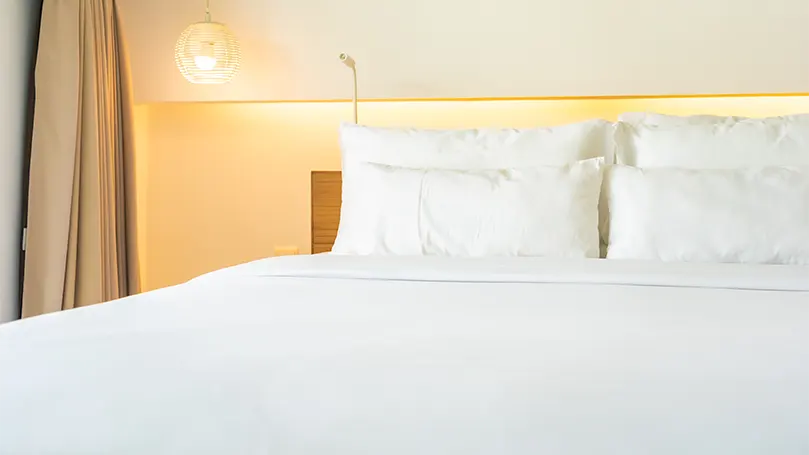
Bedding has a big impact on the quality of a night's sleep. Bed linen can improve your night's sleep. But, it can also make it significantly worse if it is too hot, unpleasant for the skin and if it is not hypoallergenic.
Egyptian cotton bedding is soft, breathable, durable and hypoallergenic, so it is used even in 5-star hotels since it is the perfect bedding material.
Towels
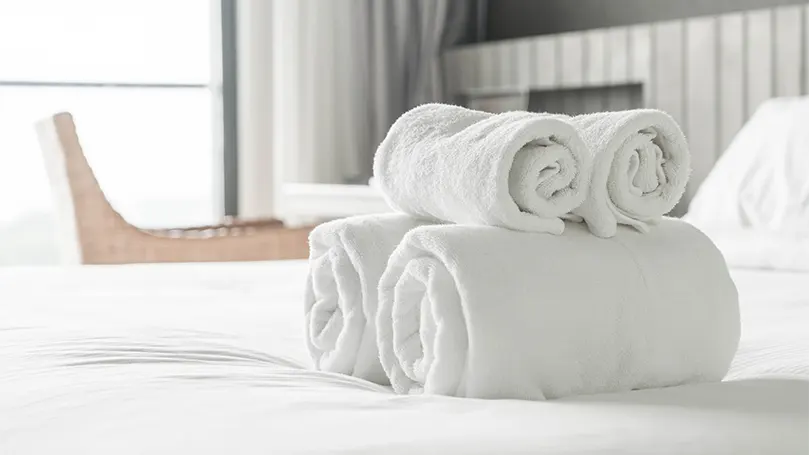
Towels should also be very soft and comfortable for your skin, as well as hypoallergenic. But the most important characteristic of towels is absorption. The towel must be able to absorb moisture from your body quickly and efficiently.
Cotton is excellent in absorbing moisture and does not lose this characteristic even after many washes. And we don't think we have to explain why this is an excellent quality to have when getting new towels.
What do you need to consider when decide for an item of Egyptian cotton?
Not every Egyptian cotton is 100% identical. Processing, craftsmanship and other influencing factors should also be considered when choosing an item made of this material. We advise you to pay attention to thread count, length of fibres and single ply.
Thread count
What is a thread count? Well, to oversimplify, thread count is the number of threads woven into one square inch of fabric. When buying this cotton, the thread count is not as important as in some other cases. Even if the thread counts are lower, high-quality fibres will certainly have all the desired characteristics. That means a higher thread count is not equal to quality. But since you spend a larger amount of money on Egyptian cotton than on regular cotton, you should choose a thread count of 500 or more.
Length of fibres
When the fibre is long, it is less prone to wear and tear. Since it is a long staple or extra-long staple, you don’t have to worry about wear and tear. But you need to check the exact length of the fibres just in case. Although the difference between fibre lengths may seem minor, even between short staple and long staple, believe us that every difference is important. So don't just assume that Egyptian cotton is a long staple, check the exact measurements.
Single ply
Have you ever heard of ply in the context of fabrics? This is the number of yarns that create one single thread by being twisted around one another. We prefer single-ply, sometimes called 1-ply, primarily because of breathability. If you are a hot sleeper looking for breathable sheets, pay attention to this. If breathability is not the most important feature to you, then 2-ply and 3-ply are also good choices.
How do I care for my Egyptian cotton items?
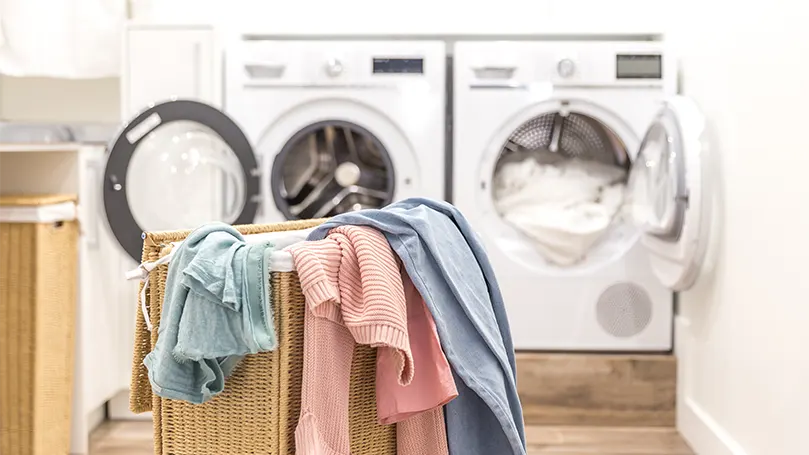
Egyptian cotton is very easy to maintain. As it is very durable, you don't have to worry about the signs of wear and tear appearing after a few washes. Follow the washing instructions for the product you bought, but generally, every Egyptian cotton item can be machine washed.
Wash it in cold water or up to 40 degrees Celsius. Use a gentle wash cycle, to avoid damaging the fibres. Our advice is to use pH-neutral and eco-friendly detergents both for the sake of it and for the sake of preserving the environment. Do not use bleach, strong chemicals or dry clean Egyptian cotton. You can use a dryer but also avoid high heat cycles.
You certainly don’t want your expensive Egyptian cotton bedding set to be damaged due to improper maintenance, otherwise, it would last for years.
What are the main disadvantages of Egyptian cotton?
Nothing is perfect. Egyptian cotton has certain disadvantages, as is the case with every other natural and synthetic material available. But these disadvantages are rather minor and we doubt that they will deter anyone from buying an Egyptian cotton item. Most of these disadvantages can be solved very easily so they are barely worth mentioning. That is why we mention them at the very end of our Egyptian Cotton 101 guide.
Prone to wrinkling
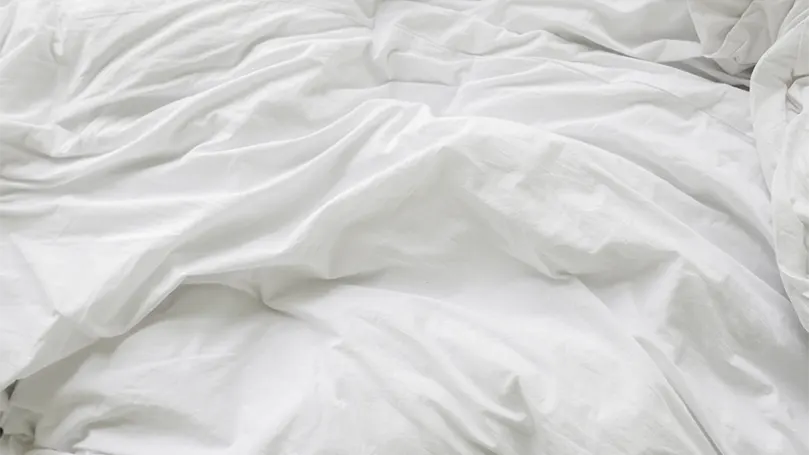
Since it is 100% natural, Egyptian cotton wrinkles more easily than some other materials. Many will not notice or consider it important, but if it bothers you, there is a solution. When you wash it using the gentle cycle, take it out of the washing machine as soon as possible.
If it stays crumpled inside, it will be very difficult to iron it later. Then iron it thoroughly, using medium heat, of course, according to the instructions.
Requires several washings before reaching the maximum softness
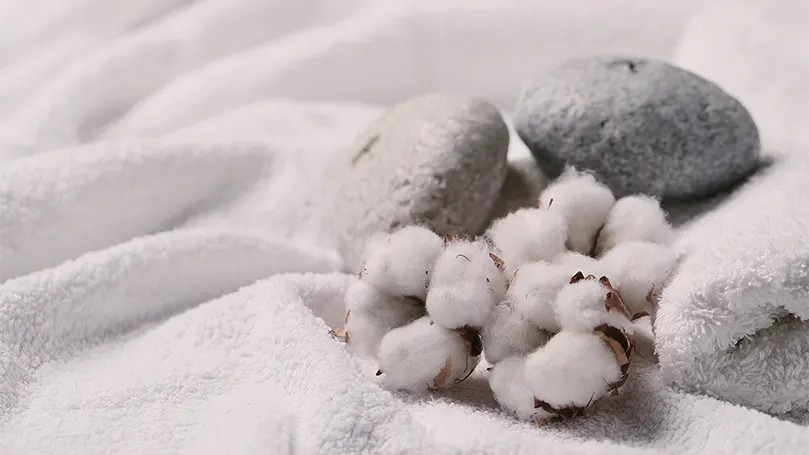
When you buy it, you may be surprised at first because it is not as soft as we told you and as you expected. It's only temporary. It is true that during the first few days or weeks of use, it is not soft as advertised. But, it will become very quickly.
It takes a few washes to soften. If you don’t want to wait, you can wash it a few times in a row and get your soft bedding, towel or shirt. Ironing can help too.
Not for hot wash cycles
We see no reason to wash Egyptian cotton at all using hot wash cycles. But certain customers like to wash items at 60 or 90 degrees Celsius to make sure the bedding and towels are completely clean. You need to know that it is not suitable for this and that you will damage it that way. But you don't have to worry, it's hypoallergenic and antibacterial, so it's enough to wash it at 40 degrees or even in cold water.
Conclusion
Overall, we'd say that Egyptian cotton would make for an excellent choice for a lot of people. That being said, it's not perfect either. Which material do you prefer? Egyptian cotton, silk, bamboo, or something else entirely? Make sure to tell us in the comments!
Spread the word
Recommended reading:


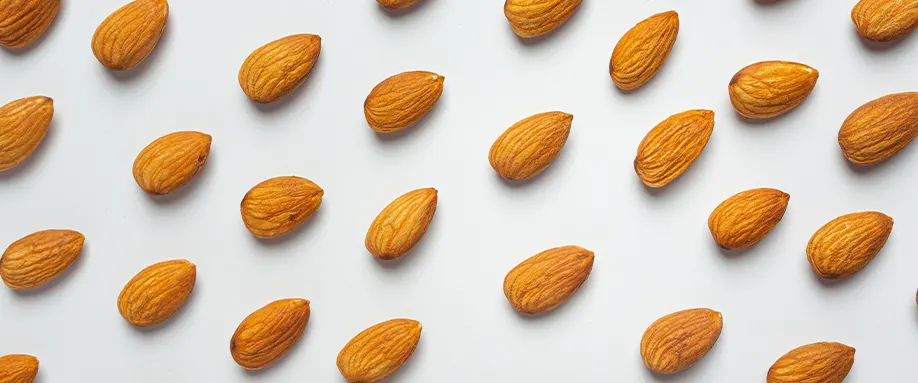
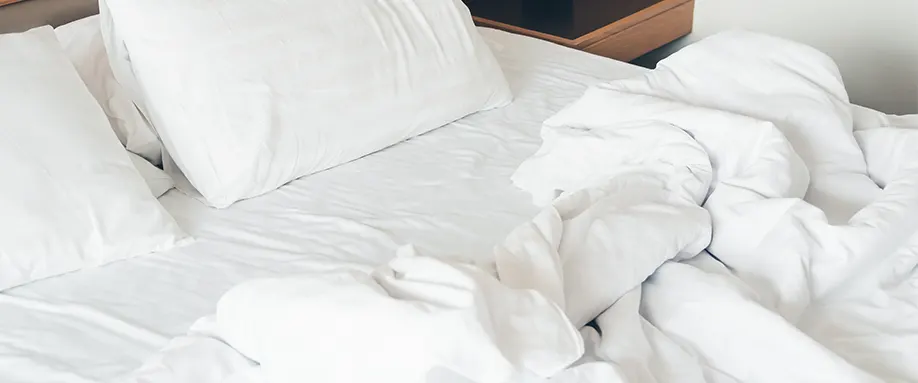












There are no comments yet
"*" indicates required fields